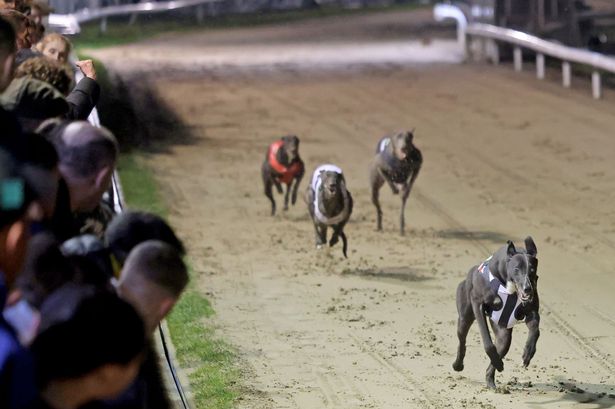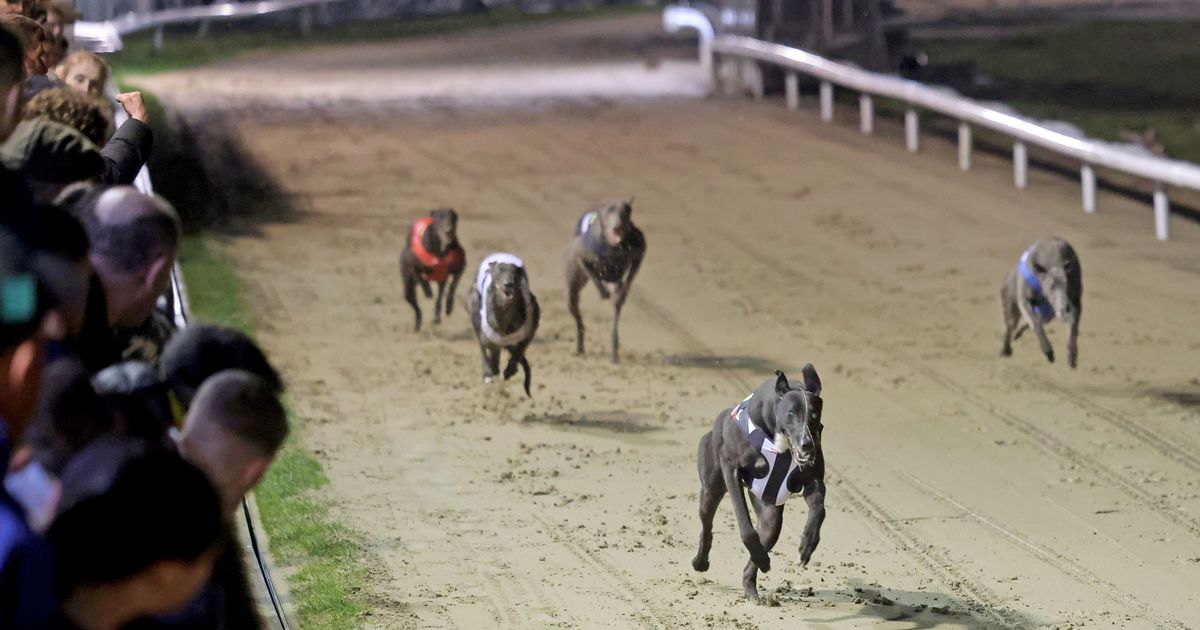Supporters of the Wales-first ban say it’s necessary for animal welfare but there are opponents More than 35,000 of people signed a Senedd petition calling for a ban on greyhound racing(Image: John Myers)
More than 35,000 of people signed a Senedd petition calling for a ban on greyhound racing(Image: John Myers)
The Welsh Government’s proposed ban on greyhound racing in Wales could be delayed or scuppered entirely by a judicial review, the minister in charge of the new law has admitted. In a heated session, he faced questions about opposition to the law, which one Senedd member said had only come about because of a “political fix”.
Rural affairs minister Huw Irranca-Davies introduced the law to the Senedd on Tuesday (September 30). However, serious questions were asked about the proposals, with one MS calling the fact it is even being proposed a “political fix” and questions about whether it will be defeated by opponents including the Greyhound Board of Great Britain, who have starting judicial review proceedings.
North Wales MS Llyr Gruffydd referenced the fact the law was only pursued after the Labour administration did a deal with sole Lib Dem Senedd member Jane Dodds in order to get their budget passed.
Part of that were concessions to her, including this ban – something she is a huge supporter of.
More than 35,000 of people signed a Senedd petition calling for a ban, and when the Welsh Government consulted over its proposals there was 65% support, Mr Irranca-Davies said.
He told the Senedd: “Public sentiment on this issue cannot be overstated. Campaigns led by animal welfare groups have mobilised thousands of voices in support of reform.
“These testimonies have helped shape this legislative response. We have engaged with industry stakeholders and acknowledge the efforts made to improve welfare, including improving track safety and implementing rehoming policies. However, the risks of injury, fatality and poor post-racing outcomes remain.”
However, some of those in the industry object saying it will end a long and historic tradition, and have a devastating economic impact.
There is just one licenced track left in Wales, the Valley Greyhound Stadium in Ystrad Mynach.
In order to ban greyhound racing, the law does two things, making it an offence to operate a stadium or a similar venue in Wales and to use it, or knowingly permit it to be used for greyhound racing and also to be involved in organising greyhound racing in Wales
Mr Gruffydd said: “First of all, deputy First Minister, this isn’t the way to do it, is it? Even some people who are in favour of the ban are a bit uncomfortable at the fact that the only reason this is happening now is because of a political fix. That said, I clearly appreciate the weight of support for action from Members of the Senedd, across parties, including my own.
“But it really doesn’t sit comfortably with me that I’ve been sitting in the chamber listening to the Government tell me, time and time again, that there’s absolutely no time and absolutely no capacity to do anything over and above the existing programme for government and the legislative programme that was originally proposed for the Senedd. But then, at the drop of a hat, you find the time and you find the capacity for this bill to come before us.”
Ms Dodds contested his words telling him: “I was the one who did the political fix, and I’m proud of that. And Llyr: Plaid Cymru did lots of political fixes when you had the three years as part of the deal. So, please, it really is unreasonable for you to say that”.
The Plaid Cymru MS raised a judicial review that the government is facing which could scupper the whole plan saying it was the “elephant in the room”. For our free daily briefing on the biggest issues facing the nation, sign up to the Wales Matters newsletter here
Asked if would delay the proposed timetable of the earliest date of 2027 but no later than 2030, or even obstruct the ban entirely, Mr Irranca-Davies said: “We’re awaiting the court’s decision on whether the claim will be granted permission to proceed to a full hearing.
“We can’t predict when a decision will be made—it’s a matter for the courts, of course—so there’s a limit to what we can say on this.
“We don’t know when a hearing date, if it is granted—if it is granted—would take place, but probably you could anticipate that spring of next year would be logical as the earliest date. But as this is now the subject of live litigation, it’s not appropriate for me as a Welsh Government minister to comment further on it at this stage.”
There were also questions about the statistics behind the law.
Mr Irranca-Davies quoted figures showing that of 355,682 dog runs in 2024 at licensed GBGB tracks in England and Wales, there were 3,809 injuries and 123 track-related fatalities.
Campaigners say it is hard to know the exact number of dogs injured due to racing in Wales, but say that between 2018 and 2021, Hope Rescue’s Amazing Greys project helped over 200 racing greyhounds. Of these dogs, 40 endured serious, career ending injuries such as severe fractures needing significant veterinary treatment, amputation or orthopaedic repair.
Greyhound Board of Great Britain (GBGB) said when issuing its claim for judicialr review that it thinks its claim is “strong and justified”.
CEO Mark Bird said: “GBGB has always strongly opposed any ban on greyhound racing and continually encouraged policy makers to support robust regulation, which is evidently the most effective way to protect the welfare of racing greyhounds and the integrity and prosperity of the sport going forwards.
“We believe that our claim for judicial review is both strong and justified following the deputy First Minister of Wales’ ministerial statement deciding to introduce a ban on greyhound racing as soon as possible.
“We are grateful to all those who are supporting this important claim as we strive to secure the future of the sport.”
